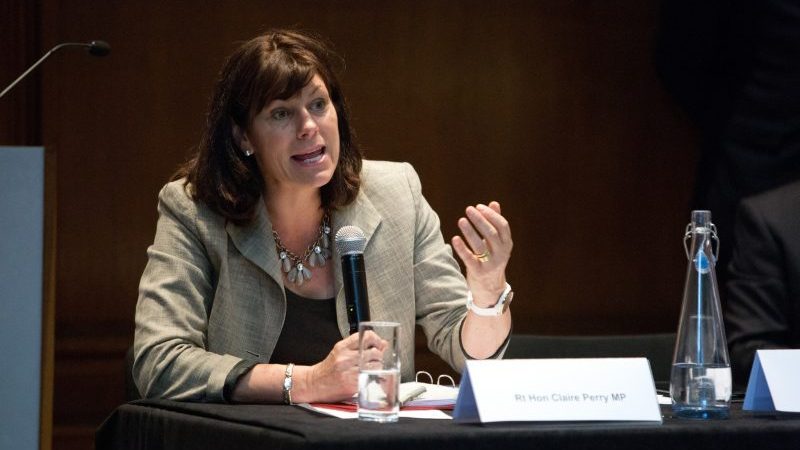In October, world leading scientists delivered a stark warning of the potentially devastating impacts of climate change on our health, prosperity and energy security.
Since then, heightened interest around the world has led to passionate debates in column inches, across the airwaves and on the doorstep of Westminster office. The argument for increased global action is being heard and unites us all.
Left unchecked, climate change will ravage our natural environment, ruin our health and destroy our global economies.
That’s why policymakers and climate experts are gathered in Katowice, Poland, for pivotal talks on ambitious action. This ‘Conference of the Parties’ (Cop24), seeks to ensure there is no rowing back on the historic 2015 Paris Agreement, in which the UK was instrumental in driving forward ambition.
We are in this together, which is why we are spearheading momentum in Poland to establish a ‘rulebook’ for curbing climate change – bringing the detail of the Agreement to life. Without a robust rulebook, there is a risk that countries will take their foot off the pedal in confronting the challenge.
This rulebook must create a level playing field for everyone to play their part. Greater transparency will ensure scrutiny of progress toward targets and increase sharing of best practice. We cannot tackle this in isolation. We must spread collective wealth of knowledge to find the most effective and innovative ways of tackling climate change.
Get our daily round-up of news from this year’s major UN climate talks straight to your inbox. Sign up here
We have a window of opportunity to act now, as the world looks to the UK for leadership. With our solid track record, we know we are best placed to promote clean growth opportunities of to our international friends and partners. Since 1990 we have cut emissions by more than 40%, while growing our economy by more than two-thirds. During our first-ever Green GB Week, more than 30 UK-based businesses committed significant action to tackle climate change, from investing hundreds of millions in new solar panels to converting fleets of trucks to biofuels. Our story is compelling and one we must share.
Don’t just take my word for it. Over the two weeks of Cop24, there will be almost 60 events at the UK Pavilion to promote our expertise in clean growth technologies and climate solutions. UK businesses will be showcasing how they are grasping the economic opportunities of clean growth with both hands.
But it’s not all about economics. There is a moral imperative too, as the effects of climate change already dominate our lives. Wildfires ravaging California, one of the hottest UK summers on record, and the Thwaites glacier in the Antarctic losing over 50 billion tonnes of ice each year. We are all feeling the effects of climate change, but the poorest and most vulnerable people will inevitably feel it hardest.
That is why three years ago, the UK and other developed countries committed to mobilising $100 billion a year by 2020 to help these countries cope with the increasing risk of droughts and floods and provide access to clean energy. We know that every pound spent reducing CO2 today pays for itself between five and 20 times over in offsetting climate impacts.
In Katowice, the UK Government will be committing £100 million to support up to 40 small-scale renewable projects in sub-Saharan Africa, leveraging private finance in clean energy to deliver thousands of people the renewable electricity they so badly need.
UK climate finance has, to date, supported 47 million people across the globe cope with the effects of climate change and provided 17 million people with improved access to clean energy. Investing this money overseas keeps us secure too. In the UK’s 2015 Strategic Defence and Security Review, climate change was recognised as leading to and exacerbating instability overseas through crop failure, droughts and climate-change related migration.
Ultimately, tackling climate change is a win-win for the environment and the economy, and an investment in our future security and national interest.
Amongst the recent chatter, I keep being asked one question in particular – does leaving the EU mean the UK will row back on its ambitious climate action? Let me say it once again: absolutely not.
The UK has always been ahead of the curve in setting climate ambition, and this year marks the 10th anniversary of the UK’s landmark domestic Climate Change Act passing into law with near-unanimous cross-party support, setting an ambitious legally-binding target to reduce greenhouse gas emissions by at least 80 per cent of 1990 levels by 2050.
Just last week we held the world’s first Carbon Capture Usage and Storage conference, bringing together business leaders and politicians to discuss how we can finance this potentially game-changing technology with a Government boost of £20m. And this month also sees the one-year anniversary of our modern Industrial Strategy which puts moving to a cleaner, greener economy at the centre of our post-Brexit blueprint for the economy.
Our ambition will not be hindered by leaving the EU. In fact, when I asked our independent advisers, the Committee on Climate Change for advice on setting a net zero target in response to the Special Report, we were the first major developed country to take such action.
At Cop24 it’s imperative to turn talk into action and we will be using the full force of our international leadership and our economic clout to secure a rulebook for the Paris Agreement fit for everyone, ensuring confront this danger together with increased global ambition and effective policies to protect our planet for future generations.
Claire Perry is UK minister for energy and clean growth
